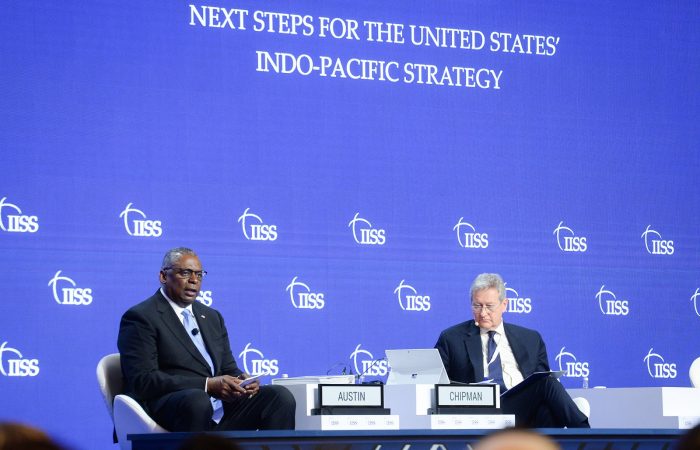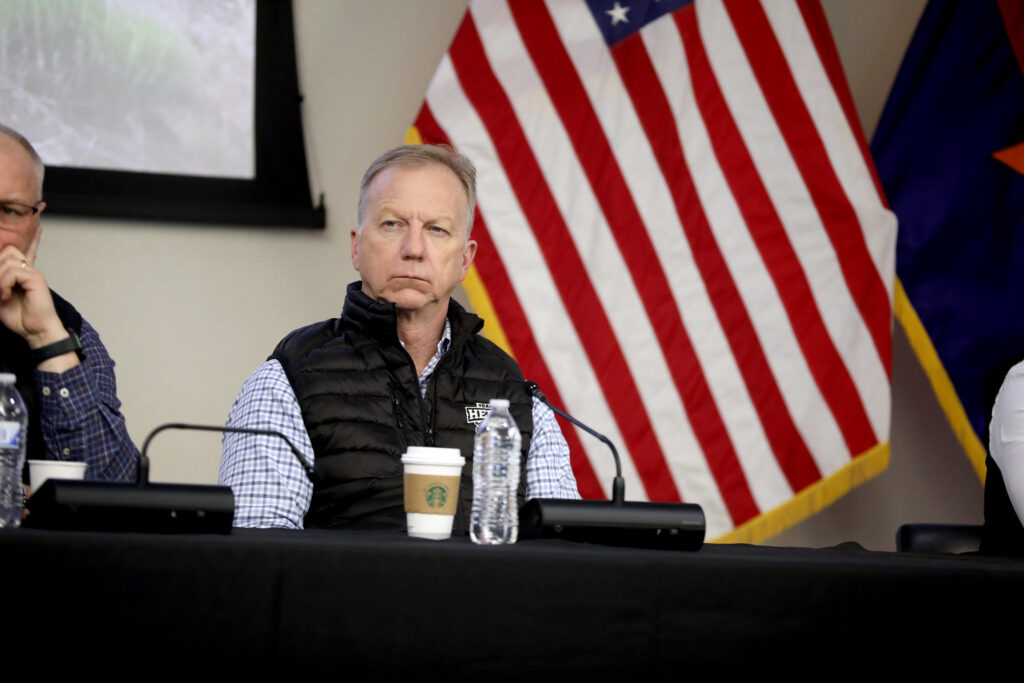From June 10-12, the 19th Shangri-La Dialogue was held in Singapore for the first time since 2019. Continuously held in the same location since as a near annual affair, it has become a much-anticipated summit and a prime example of how honest, direct, and open dialogue can bring progress to highly complex cross-border issues.
Secretary of Defense Lloyd Austin’s speech on behalf of the United States, given in Plenary Session 1 on June 11 and entitled “Next Steps for the United States’ Indo-Pacific Strategy”, can be roughly divided into four sections. Notably, he generally reserves any direct mention of China until the latter part of his address.
After establishing niceties and acknowledging the challenges and achievements of addressing the pandemic, Secretary Austin discusses the “common vision” that most Indo-Pacific nations hold for a “region free of aggression and bullying” based on a “shared belief in transparency” and a “dedication to openness and accountability. He repeatedly depicts and defends the necessity of committing to a unified, “shared responsibility” and “common action” among all players to address the Indo-Pacific’s various challenges.
Next, Austin addresses the “reckless” Russian invasion of Ukraine and how it has altered global stability. He uses it as a real-world example of what could be at risk if sovereignty and the rules-based international order in the Indo-Pacific is not protected.
Third, Austin illustrates the United States military’s increased commitments—monetarily, diplomatically and strategically—in the Indo-Pacific. He repeatedly mentions examples of strategic partnerships and joint exercises with regional players, noting that these partnerships are “the heart of the President’s Indo-Pacific Strategy.” Increased and steady multilateral communication is also heavily emphasized.
Last, after briefly acknowledging North Korea’s habitual provocations and missile tests as one of the “challenges to security and stability in the Indo-Pacific”, Austin proceeded to address the People’s Republic of China’s “more coercive and aggressive approach to its territorial claims” in the East China Sea, South China Sea, the Taiwan Strait and further to the west.
Secretary Austin, as expected, made numerous mentions of Beijing and the People’s Republic of China. However, the vast majority of them were either saved until the latter part of his address or given in response to questions asked at the end of his session. The statements and responses given were by-in-large confirmations of the United States’ security position on China, with Taiwan in particular receiving a lot of attention following a series of what some analysts and lawmakers are calling the Biden administration’s recent “mixed messages” on the issue.
For instance, in his Q&A session, when directly asked about the consequences that the United States promised would occur if China built artificial islands in the South China Sea, Austin said that there have been consequences: “a much more united region. A region that is focused ever so much more on a vision of a free and open Indo-Pacific.”
In his speech itself, Austin noted the “growing coercion from Beijing” in the Indo-Pacific region and reminded listeners that “big powers carry big responsibilities.”
...great powers should be models of transparency and communication. So we’re working closely with both our competitors and our friends to strengthen the guardrails against conflict. This includes fully open lines of communication with China’s defense leaders to ensure that we can avoid any miscalculations. These are deeply, deeply important conversations. And the United States is fully committed to doing our part.
And on the United States’ policy on Taiwan, Austin made multiple “clear” promises and statements in both his speech and again in his Q&A session regarding a policy that he said has been “consistent across administrations”.
We remain firmly committed to our longstanding one-China policy–guided by the Taiwan Relations Act, the three Joint Communiques, and the Six Assurances. We categorically oppose any unilateral changes to the status quo from either side. We do not support Taiwan independence. And we stand firmly behind the principle that cross-strait differences must be resolved by peaceful means.
He did immediately follow these statements with a notice that U.S. commitments in the aforementioned Taiwan Relations Act include “assisting Taiwan in maintaining a sufficient self-defense capability” and resisting “any use of force or coercion that would jeopardize the…system or the people of Taiwan.”
We remain focused on maintaining peace, stability, and the status quo across the Taiwan Strait. But the PRC’s moves threaten to undermine security, and stability, and prosperity in the Indo-Pacific.
“We seek inclusion, not division. We seek cooperation, not strife”, Austin summarized in his conclusion. “By working together. By listening to one another. By acting as good friends and good neighbors. And by again showing the world the power of partnership.”




